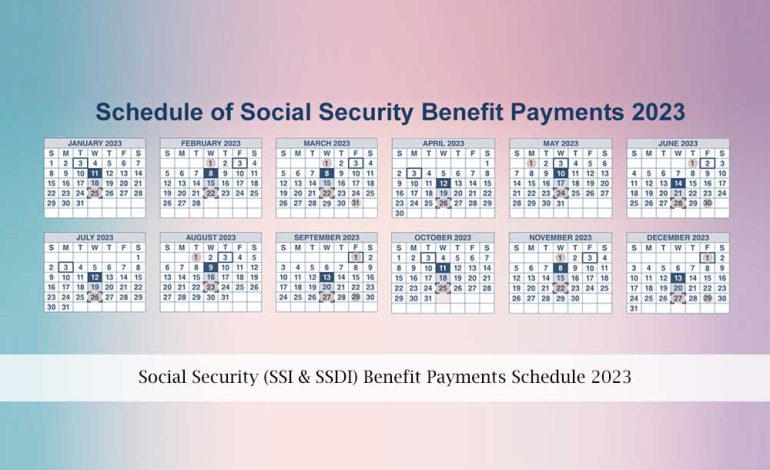What Happens When You Report Disability Fraud?
Reporting someone to the Social Security Administration or to another federal law enforcement agency is a serious decision that can have life-changing consequences. In this blog post, we’ll explain what constitutes disability fraud, what penalties can be imposed on someone who is caught defrauding the government to obtain disability benefits, and how you would go about reporting a disability fraudster if you knew of one.
What Counts as Disability Fraud?
Stated simply, disability fraud is the intentional receipt of financial disability benefits from the government when you are not entitled to the benefit, or knowingly receiving more of a benefit than you are entitled to receive. While this could also be a fraud committed against a private insurance company, we are concerned with only government disability benefits in this blog post.
To be a bit more specific, the receipt of the undeserved money or benefits is the result of wrongful acts you or someone else committed. For example, filing a disability claim with falsified information, claiming injury or illness you didn’t suffer or failing to report your true income which is higher than allowed by the program’s eligibility rules.
Ways of Committing Disability Fraud
There are many methods of attempting to obtain government benefits when you are not entitled to them. Although some of these acts may seem like “white lies,” any knowingly made false statement about a material fact can lead to shockingly severe civil and criminal penalties.

1). False Statements
Providing false information about a “material fact” in your disability application package or in any communication with government workers during the disability claims process can constitute a major felony. Falsely claiming less income than you earned, or falsely reporting physical or mental impairments you don’t actually have in an attempt to obtain benefit payments are clear examples of false statements that would constitute disability fraud.
2). Concealing Information
If you fail to report truthful, relevant information to avoid revealing something that would disqualify you or reduce the benefits you receive, this too is a clear act of disability fraud. For example, if your disability improved so substantially that you knew you could return to work, but you failed to report that fact and, instead, kept collecting benefits, you would be committing disability fraud.
This report can by anonymous, but the SSA doe request your contact information. If you provide your contact information, the SSA can contact you for further information. The agency may need to contact you before completing the investigation. Or, if you were listed on an SSD recipient’s bank account so you could more conveniently help them, and you continued to accept and use the deposits after the disabled person’s death, then concealing the death is disability fraud.
3). Using or Presenting False Documents
This form of disability fraud can involve false identity cards, often used to claim benefits using another person’s identity information without their knowledge or consent. In this way, some people discover that they apply for a benefit and they learn that someone already filed a claim under the person’s name without their knowledge.
Someone could also forge, alter, or create medical records to support their exaggerated or false disability claim. Others could submit false income statements to hide the fact that they’re actually earning far more income than they report to the Social Security Administration. Higher-income would usually disqualify the person from SSD which is a needs-based program.
4). Theft or Misuse by a Representative Payee
Sadly, many SSD and SSI recipients are too physically or mentally impaired to manage their own financial or business affairs. They typically nominate a “representative payee” to whom the disabled person’s benefit payments are deposited. Most payees are honorable, trustworthy, devoted caretakers and family members. But some representative payees use the disability benefit payments for their own purposes instead of strictly for the benefit of the person for whom the benefits are intended.
A payee who converts the beneficiary’s payments to their own use commits disability fraud.
What Are the Penalties for Disability Fraud?
Federal law provides severe civil and criminal penalties for someone convicted of disability fraud.
A conviction for knowingly and willfully committing the following acts is punishable by up to 5 years in federal prison and payment of up to $250,000 in fines:
- making or causing to be made a false statement of a material fact in any application for a disability benefit, or
- making or causing to be made a false statement of material fact for use in determining rights to any such benefit,
- fails to disclose or conceals knowledge of an event affecting their right to receive benefits they are not entitled to, or receive benefits in greater quantity than they are entitled to, with intent to fraudulently secure such benefits, (or fails to disclose the same knowledge about another person on whose behalf they applied or who is receiving benefits),
- converting benefits or any part of the benefit to any use other than for the use and benefit of the intended disabled benefit recipient, or
- conspires to commit any of the above-described offenses.
Higher penalties can be imposed on anyone who receives a fee for services performed in connection with any determination about benefits.
A penalty of up to 10 years in federal prison and the payment of massive fines face anyone person making money from their involvement in the disability fraud, including any
- claimant representative or advocate
- translator
- a current or former employee of the Social Security Administration
- a physician or another healthcare provider who submits or causes the submission of medical evidence or other evidence relating to a determination of someone’s eligibility for benefits.
The criminal case conviction may not be the end of the punishment for someone defrauding the government of disability benefits. The government can file a civil suit seeking repayment of the entirety of the illegally received benefit payments, plus interest and penalties. In addition, fines of up to $5,000 can be imposed for each separate instance of fraud.
This is especially threatening if false statements and documents were submitted repeatedly over the course of months or years. For persons with professional licenses, like doctors, nurses, and lawyers, the licensing board overseeing their profession can and often does suspend or revoke their license to practice their profession.
Be Careful to Avoid Mistakenly Accusing a Person of Disability Fraud
As you’ve read in the paragraphs above, extremely serious penalties and other negative consequences await anyone convicted of disability fraud. But merely being accused of such a crime can often be as destructive to a person’s life as is the actual punishment of the guilty.
Innocent disability recipients who are wrongly accused of disability fraud can suffer torturous fear and anxiety, sometimes more pain than they or their families can bear. They may need to hire a skilled defense lawyer at a cost they cannot afford without sacrificing precious assets, like their home.

No one should ever accuse another person of criminal conduct unless they have a degree of certainty that is based on reliable, objectively validated evidence.
Do You Know What Disability They Have?
Unless you are thoroughly familiar with the details of the suspected fraudster’s medical records, who can know what the nature and extent of their impairment is? If you see someone receiving disability in their driveway lifting heavy bags, you may be tempted to report them as frauds. But SSD benefits are often approved when claimants have a complex of physical and mental impairments. Your neighbor’s mental health (major depressive disorder, bipolar disorder, post-traumatic stress disorder, etc.) could be a key component of their disability claim.
Observing someone walk, run, stand, lift, or bend over without obvious difficulty or pain does not mean they are not legitimately and appropriately receiving SSD benefits.
Do You Know If They Are Participating in the Trial Work Period?
Many SSD benefit recipients gradually improve enough to attempt a return to work. In the past, doing so could result in a suspension of their SSD benefit payments, causing them to face a financial crisis if they discovered that they weren’t able to sustain the continuing work schedule.
To avoid the risk of having benefits cut off, under the old rules, recipients were afraid to try to work.
Now, the Trial Work Period (TWP) is a program that allows SSD recipients to return to work for up to 9 months without losing their monthly benefits. During that time, they may earn any amount of income they can.
If you report a neighbor who you know is working and collecting SSD, you may be accusing an innocent person of criminal conduct when they are actually trying to get back to work.
How to Report Disability Fraud
The Social Security Administration publishes the following information to allow informed people to report disability fraud:
Report fraud, waste, or abuse involving the Social Security or SSI programs to our Office of the Inspector General. Or, report anonymously by Calling our toll-free number at 1-800-269-0271 (TTY 1-866-501-2101), Monday through Friday from 10 a.m. to 4 p.m. ET. Faxing to 1-410-597-0118.
How can I report Disability Fraud?
You can report disability fraud anonymously by calling toll-free number at 1-800-269-0271 (TTY 1-866-501-2101), Monday through Friday from 10 a.m. to 4 p.m. ET. Faxing to 1-410-597-0118.
What does Disability Fraud cover?
It only covers fraudulent receipt of disability benefits from the government and does not concern a fraud committed against a private insurance company.



4 Comments
i had been paying direct child support to the mother of my child for many years. in the last few months i was garnishhed $8600 dollars for failure to pay her. i had been paying her directly and she has not reported it! i want repayment somehow in this. how fair is it that i paid her and have to repay when she denies i paid her.
I don’t know what I’m supposed to do other than baked some help from everybody under the Sun my mom will quit my dad’s an a****** and I need help they are hurting me really bad looking my X-rays
Hi, I don’t know who to contact. I’ve contacted the attorney general, social security, several attorneys. Which none has contacted me back. I lived in a RCF for about 2 yrs. I was told the owners would be my payee, in which later after moving out. I found out neither was my payee for the simple fact they are felons for fraud, forgery, assaults, trespassing, delivery of controlled substances, to owing back taxes. One of the owners has been to prison. They take vacations every 2-3 weeks to Vegas to watch UFC fights, Bahamas, over seas. They used my card at casino’s out of state, they signed my name on several transactions. I never got my back pay. Had over $50 grand deposited into my Direct Express card. I’m starting to lose faith in this, due to the fact I can’t get anyone to help. I have a lot of proof that I’ve found over the last several months. I just wish justice could be served there is around 30 people that reside in 2 separate RCF’s that they own. Can someone please email me and help me.
I want to know how a legitimate recipient of SSD can hold someone who is falsely accusing them fraud for receiving SSD to hold them accountable for this FRAUD.